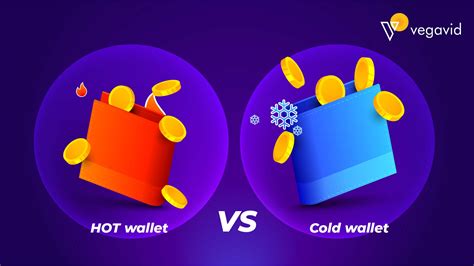Choose between hot and cold wallets: a guide to ensure cryptocurrency storage
The cryptocurrency world has exploded in recent years: millions of users around the world are visiting the decentralized Bitcoin network and other alternatives. However, as more and more people join dishonesty, the question remains: Where to protect their safe cryptocurrencies? Two popular cryptocurrency accumulation options are hot and cold wallets, each with its advantages and disadvantages.
What is a hot wallet?
A hot wallet is a digital storage solution that allows consumers to quickly and easily reach their cryptocurrency funds. Hot wallets use an internet connection, allow users to move funds between different exchanges, move them straight from one wallet to another, or even use a wallet when buying online in markets. The convenience of a hot wallet costs: it is more vulnerable to piracy and has a higher risk to commit.
Hot wallets often use people who often change cryptocurrencies or need to quickly achieve their funds. However, they can be sensitive to fraud pretending to attacks, malicious programs and other forms of cyber threats that can harm confidential information.
What is a cold wallet?
On the other hand, a cold wallet is a digital storage solution that retains cryptocurrencies. Unlike hot wallets that depend on the Internet connection to access funds, cold wallets use local storage devices such as USB units or hard disk blocks (HDD) to store cryptocurrency data. As a result, computer pirates are much harder to compromise your wallet.
Cold wallets are ideal for consumers who want to reduce their cyber threats and require a high level of security. They can be used to store large quantities of cryptocurrencies, making them a great choice for people who are planning to keep their fixed assets.
Choose between hot and cold wallets
So what’s right for you? Here are some factors that need to be taken into account when deciding between hot and cold wallets:
1
2.
- Long – -Holding : If you plan to keep your long -term cryptocurrency, it will probably be a cold wallet forward.
- Security Problems : If you are worried about cybersecurity or want an additional layer of protection for your funds, consider using a cold wallet.
Cold wallet types
There are several types of cold cash, each with its own characteristics and advantages:
- hardware wallets : These are physical devices that retain cryptocurrencies such as Trezor signs or wallets.
- USB blocks : Some users use USB blocks to store their cryptocurrencies in a safe environment.
- Partial software wallets : Partial software wallets such as Electrum or MyHherwallet allow you to control a cold wallet and transfer funds directly from your computer.
best practice to choose a cold wallet

If you decide to wear a cold wallet, there are some of the best practices here to consider:
- Use a good reputation brand before buying: Explore the cold wallet manufacturer before buying.
- Select a safe device : Make sure your cold wallet is physically safe and not easy to reach others.
- Keep the updated wallet : Regularly update your software and software -to -the -fitting equipment to make sure you have the latest safety correction.
Conclusion
The choice between hot and cold wallets depends on their individual needs and circumstances. Although hot wallets offer comfort and flexibility, they are more vulnerable to piracy threats.